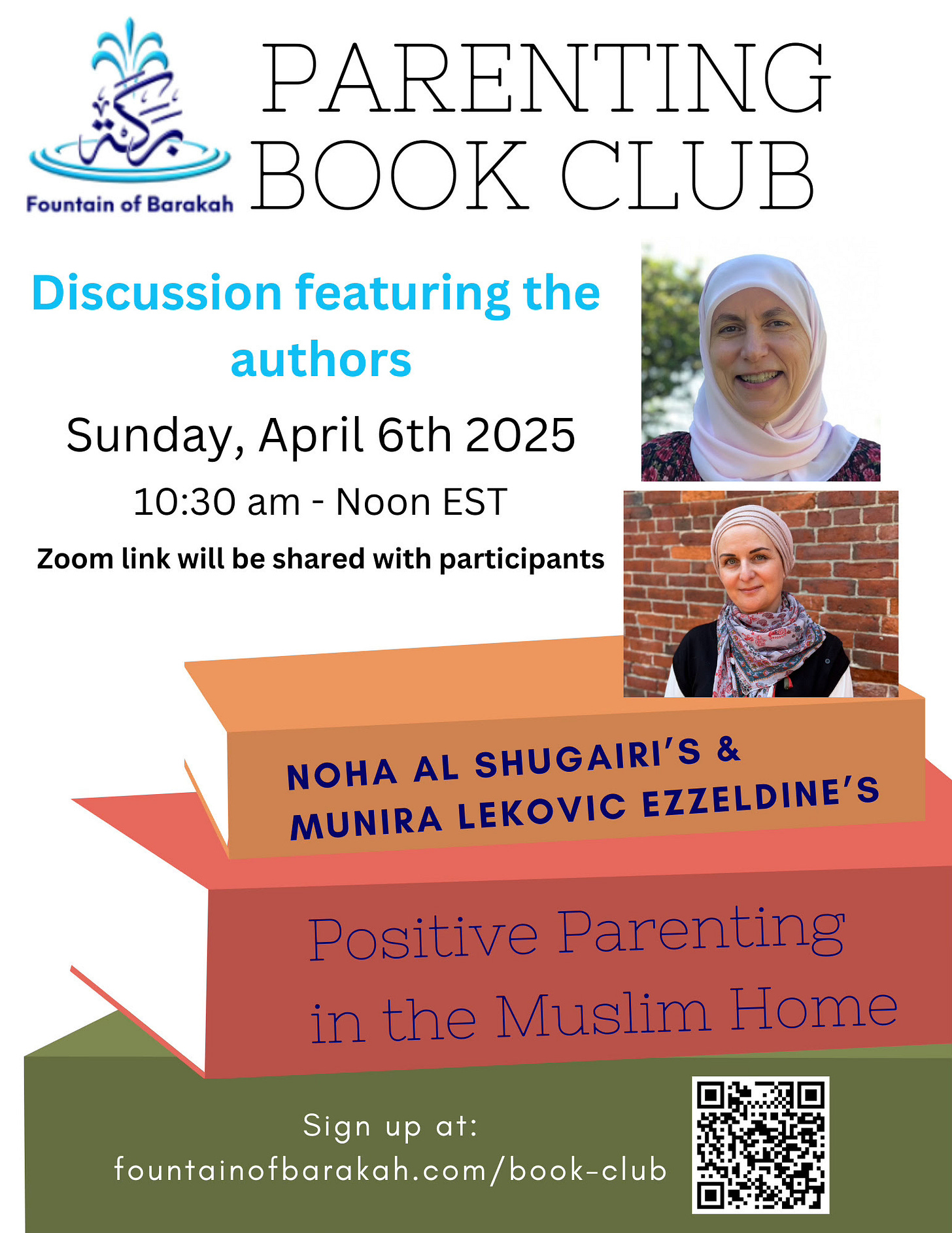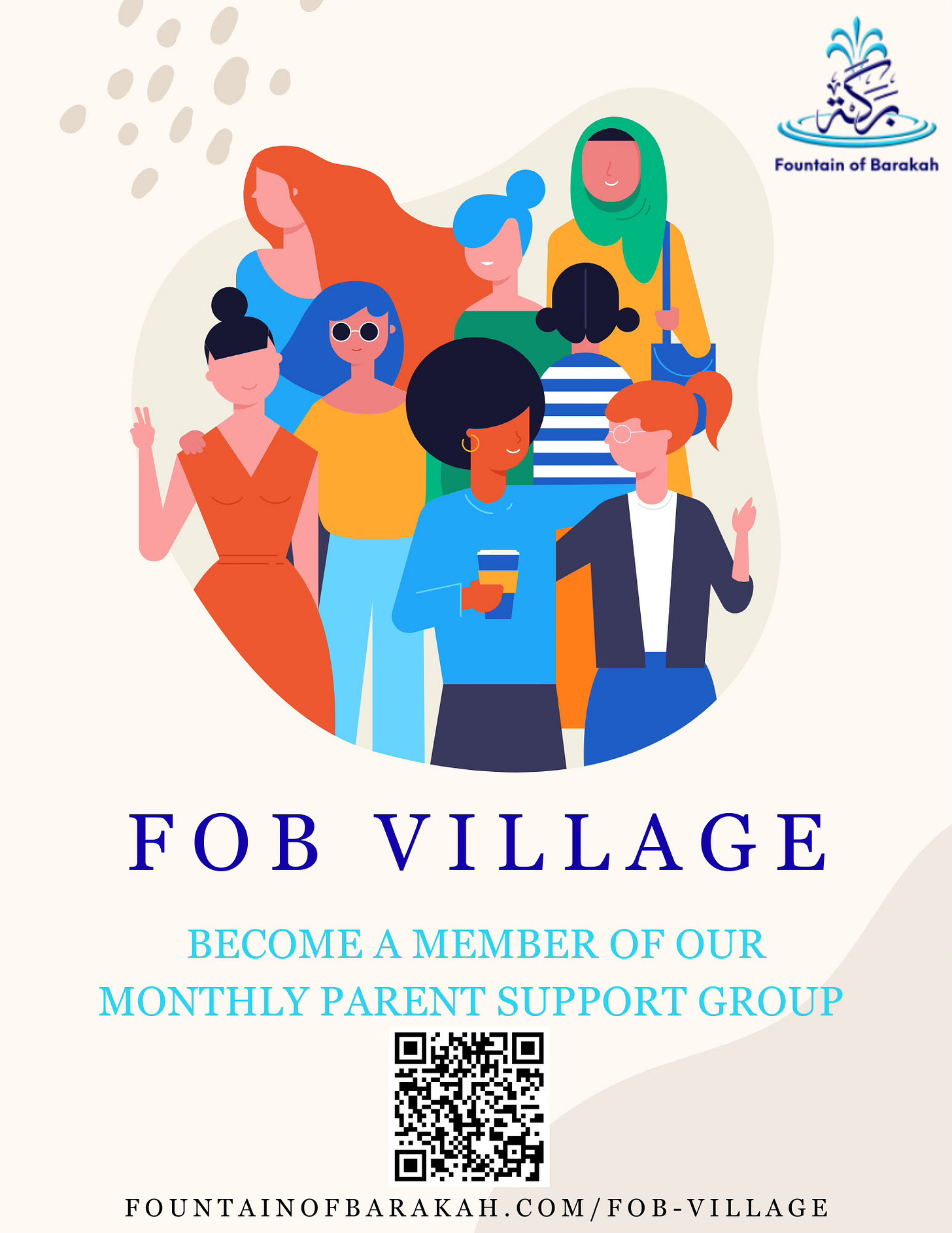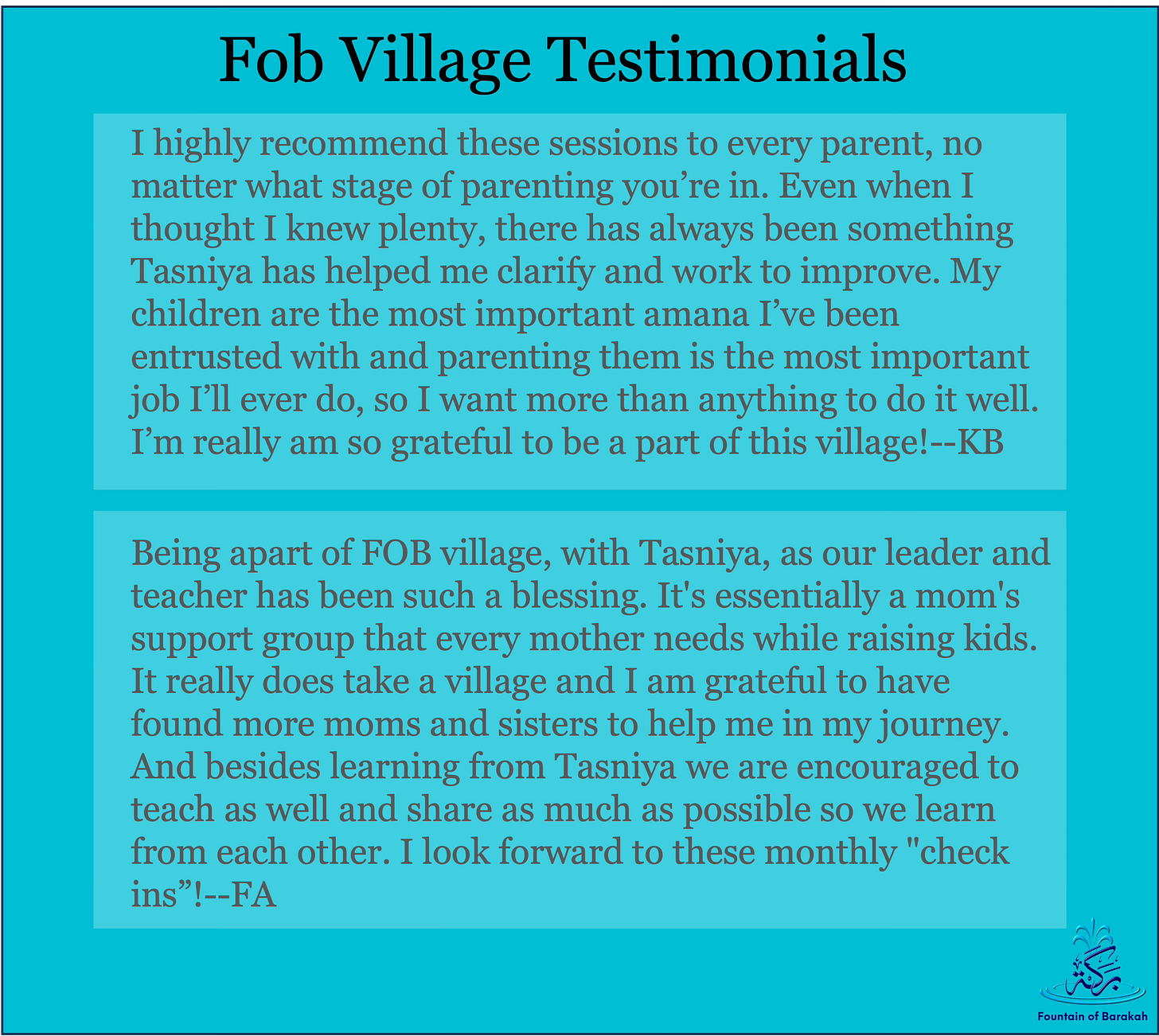Who's your Daddy?
Who is parenting our children when we operate on autopilot? Or, why mindful parenting matters.
Assalamu Alaikum!
I’m Tamim, Tasniya’s other half, and I’m excited to join the Fountain of Barakah community. I work as a researcher and manager, and in my free time, I enjoy running, hiking, and gardening. I’m an avid reader (or audiobook listener, since it’s hard to read while running!) and love extracting lessons from the books I consume, drawing connections that help me grow in various aspects of life.
Through this community, I hope to share some of the lessons I’ve learned. More importantly, I look forward to learning from all of you. As a father of a seven-year-old, I am constantly reminded of how little I know when it comes to parenting.
For my first post, I’d like to start by discussing the importance of parenting mindfully. A quote from Jim Fay, co-founder of the Love and Logic Institute, really resonated with me. It's from the foreword of Raising Mentally Strong Kids by Amen and Fay (the final book in this year’s Book Club):
“I’d like to brag that I raised my first two kids, but they were really raised by my father inside my head. Every time I opened my mouth his words and voice came out. I tried to be more patient, but I always defaulted to discipline and decibels with a Helicopter rescue every time something went wrong. My dad was still running my life. I didn’t like it, even though I had grown to love him.”
Have you ever had a similar experience? It’s uncanny how much we absorb from our parents, often unconsciously. I’ve caught myself many times realizing I sound just like my mother or act just like my father in a particular situation. While this isn’t always a bad thing, it’s important to be mindful of the impact of such behaviors.
The subconscious absorption of character traits is a primary mode of education and growth. Since we spend most of our formative years with our parents, it’s not surprising that we pick up many of their mannerisms. However, no parent is perfect. Just as we’ll inevitably fall short in some aspects of our parenting, so did our own parents. But what happens when we internalize less-than-ideal aspects of their parenting and unknowingly repeat those patterns?
One example of an unconscious parenting approach I adopted when my son was younger was threatening to send him to boarding school whenever he wouldn’t listen to me. I noticed that it had an immediate, profound impact on him—he would become fearful, clingy, and comply with my demand. Over time, I’ve learned that threats like these can have deeply negative effects on a child’s emotional well-being. I’ll explore this topic further in future posts, especially as we dive into Hold On to Your Kids, the second book in our Book Club, and discuss the importance of attachment, insha’Allah.
My wife thought threatening to send our son to boarding school was a strange approach to discipline, and I now realize that it probably would be for most people. But when I took a moment to think about why I had used this threat, I recognized it was something I had heard growing up.
The importance of mindfulness in parenting goes beyond just stopping suboptimal approaches we may have experienced as children. It’s also about being more effective in a world that’s drastically different from the one we grew up in. As an immigrant, I literally grew up on the other side of the world, in cultures and environments far removed from the one in which I’m now raising my child. Even for those who are raising children in the same areas they grew up, the world has changed so much. The structures and support systems our parents had access to are no longer present, and modern families face challenges that our parents didn’t have to grapple with.
That’s why we must be deliberate in our decisions and parenting approaches—especially when it comes to helping our children navigate this increasingly complex world. If you want to be a more mindful mom or deliberate dad, you don’t have to do it alone. As the saying goes, “It takes a village to raise a child.” While we may not have the same physical support networks as in the past, we can try to recreate that village virtually.
If you haven’t already, please sign up to receive our newsletter where we will share our experiences and lessons we are learning in our parenting journey.
As my teachers often remind me, knowledge without action is meaningless. So, I’ll leave you with three things you can do this week:
Sit down with a piece of paper and write down the behaviors or approaches your parents used when you were a child. Reflect on the ways you now find yourself doing the same with your children. Don’t judge them as good or bad—just note them to become more mindful. Throughout the week, continue adding to this list as you notice yourself repeating things from your parents. At the end of the week, think about which actions are beneficial and which you might want to change. The goal is to be present with your children, rather than letting subconscious patterns guide your actions.
After conducting the above activity, please leave a comment with the realization that surprised you the most. If nothing surprising came up during your week of parenting more mindfully, post a parenting question or topic you’d like covered in a future post.
Share this newsletter with someone you think could benefit from it and encourage them to sign up. As our village grows, we can gather more wisdom and support each other in our critical journey of mindful parenting.
Looking forward to sharing more of my thoughts in a future post. Let’s embark on this journey together, insha’Allah.
We have confirmed that both authors of the book, "Positive Parenting in the Muslim Home”, will be joining our book club discussion in April! This is your opportunity to get your parenting questions answered directly by the authors of the book we are reading! We personally can’t wait for our discussion session in order to learn from these experts in the positive parenting field insha Allah!
If you liked what you read, consider joining FoB Village, our parent mentorship community. Our monthly parent support group offers tools, resources, and experiential activities for parents to learn about positive parenting. For the month of January, we will be doing a deep dive into how our brains work when we are triggered. We will explore some practical tools to help us respond effectively when both the parent and child are triggered. So come join us and be a part of this amazing community! We were never meant to parent alone so let’s be on this journey together insha Allah! We can’t wait to see you there!
Check out some of the testimonials of members from the FoB Village! We can’t wait to welcome you to into our community so we can grow together in our monthly group coaching sessions insha Allah!
As an Amazon Associate I earn from qualifying purchases.








First of all, love the title🙌🏾😎. Secondly, this very subject has come up for me in the past couple of months as I observe how my husband and I interact with the kids and one another.
I agree it’s so important to be mindful of what we’re passing down, good or contrary, and while being on autopilot is easy, being attentive takes work.
Our kids are not us and are not being raised in the same times we were obviously. But it’s so ho ho easy to forget. Something that might have rolled off our backs as kids might impact our kids differently, maybe like your example above, and as I also had occasion to see recently with one of the kids, and it gave me pause.
I’m gonna try the checklist and see what comes up insha’Allah. JazaakumAllahu khayran to you both for doing this.